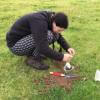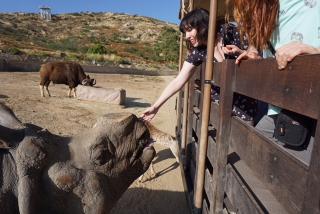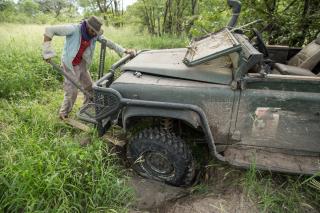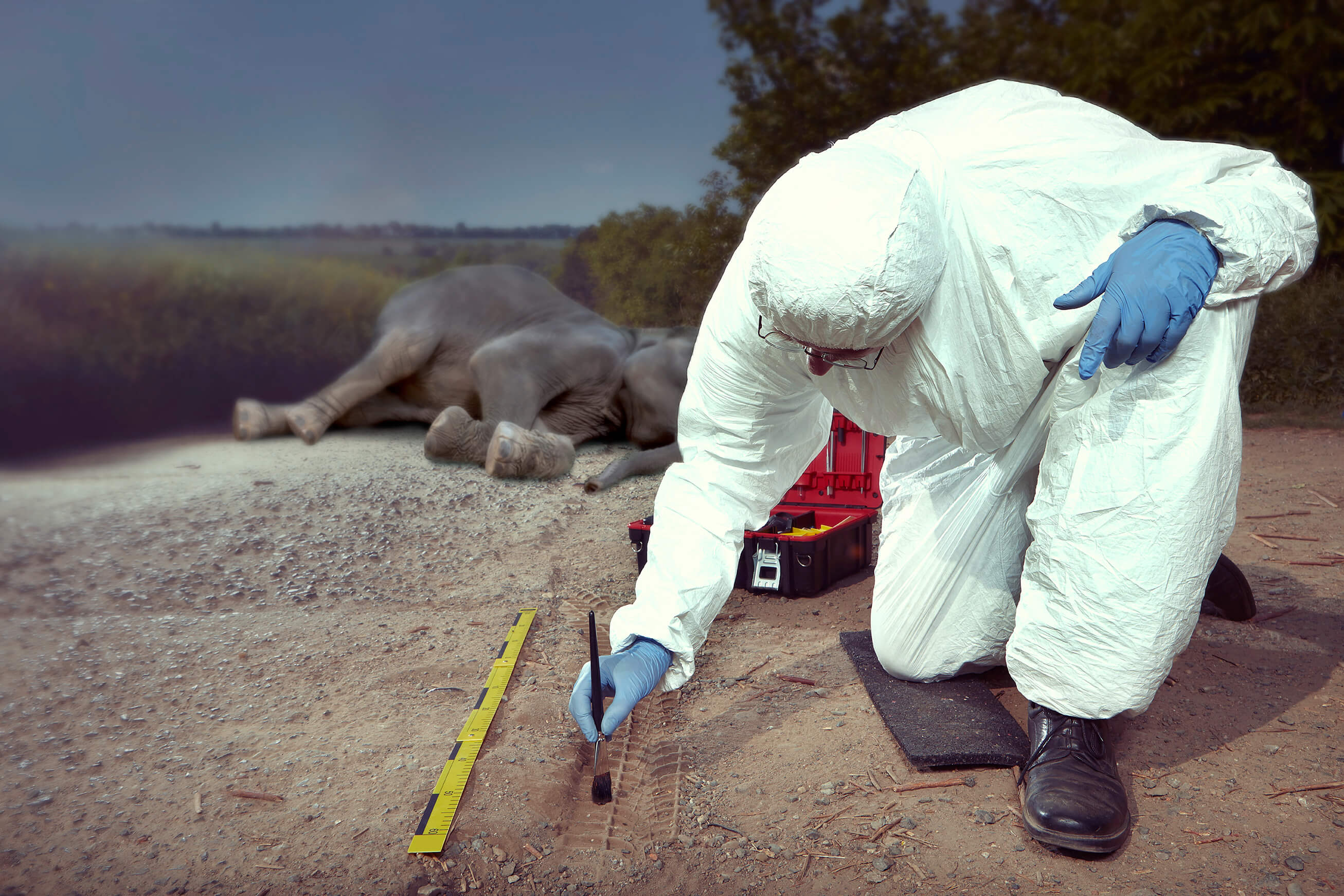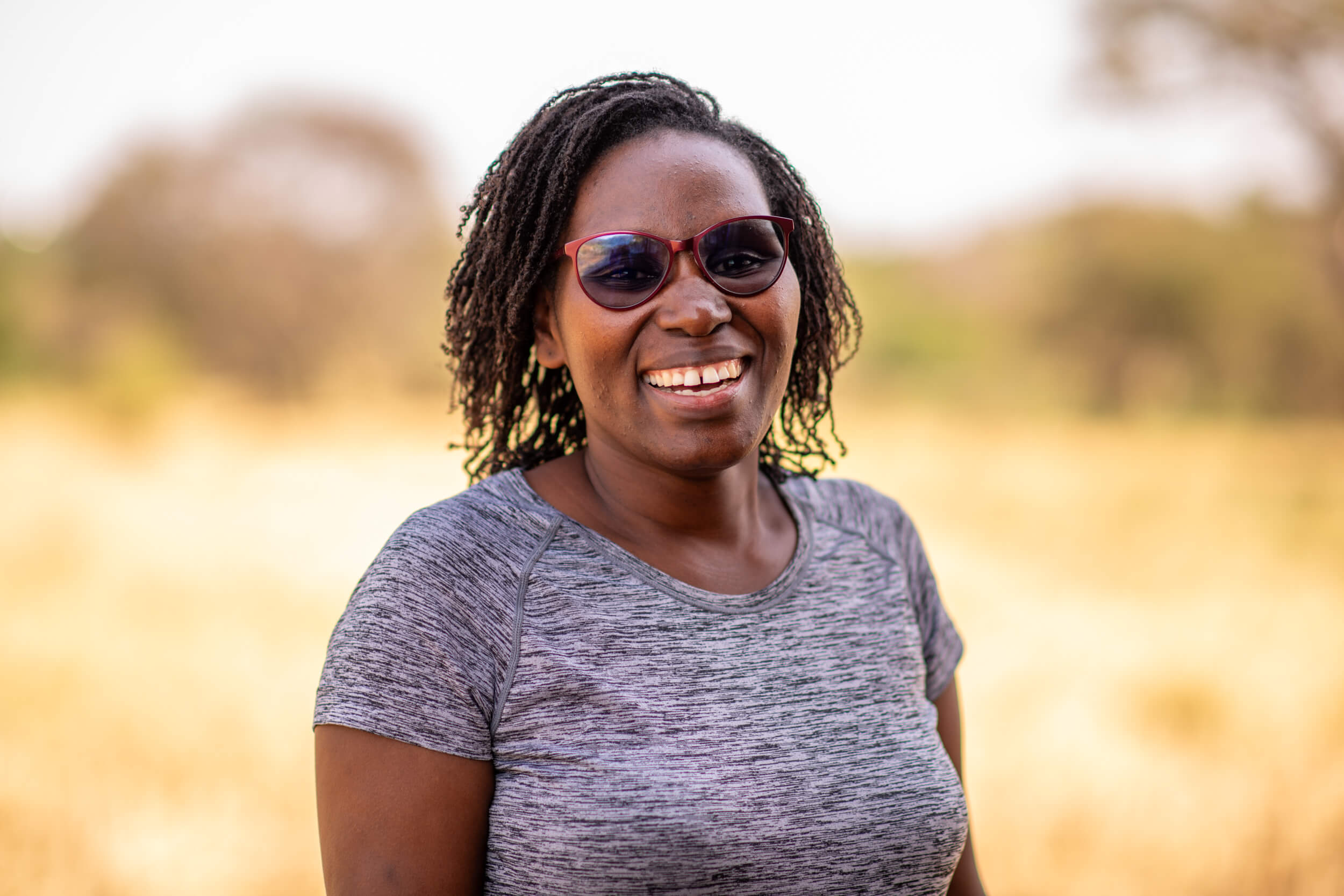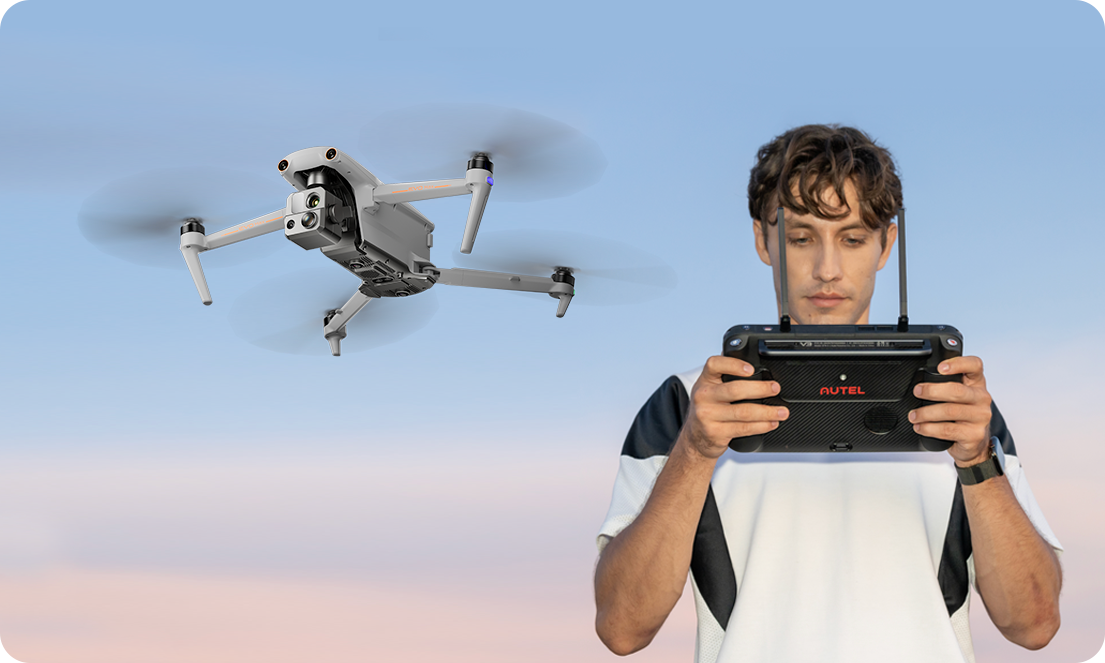With new technologies revolutionizing data collection, wildlife researchers are becoming increasingly able to collect data at much higher volumes than ever before. Now we are facing the challenges of putting this information to use, bringing the science of big data into the conservation arena. With the help of machine learning tools, this area holds immense potential for conservation practices. The applications range from online trafficking alerts to species-specific early warning systems to efficient movement and biodiversity monitoring and beyond.
However, the process of building effective machine learning tools depends upon large amounts of standardized training data, and conservationists currently lack an established system for standardization. How to best develop such a system and incentivize data sharing are questions at the forefront of this work. There are currently multiple AI-based conservation initiatives, including Wildlife Insights and WildBook, that are pioneering applications on this front.
This group is the perfect place to ask all your AI-related questions, no matter your skill level or previous familiarity! You'll find resources, meet other members with similar questions and experts who can answer them, and engage in exciting collaborative opportunities together.
Just getting started with AI in conservation? Check out our introduction tutorial, How Do I Train My First Machine Learning Model? with Daniel Situnayake, and our Virtual Meetup on Big Data. If you're coming from the more technical side of AI/ML, Sara Beery runs an AI for Conservation slack channel that might be of interest. Message her for an invite.
Header Image: Dr Claire Burke / @CBurkeSci

Explore the Basics: AI
Understanding the possibilities for incorporating new technology into your work can feel overwhelming. With so many tools available, so many resources to keep up with, and so many innovative projects happening around the world and in our community, it's easy to lose sight of how and why these new technologies matter, and how they can be practically applied to your projects.
Machine learning has huge potential in conservation tech, and its applications are growing every day! But the tradeoff of that potential is a big learning curve - or so it seems to those starting out with this powerful tool!
To help you explore the potential of AI (and prepare for some of our upcoming AI-themed events!), we've compiled simple, key resources, conversations, and videos to highlight the possibilities:
Three Resources for Beginners:
- Everything I know about Machine Learning and Camera Traps, Dan Morris | Resource library, camera traps, machine learning
- Using Computer Vision to Protect Endangered Species, Kasim Rafiq | Machine learning, data analysis, big cats
- Resource: WildID | WildID
Three Forum Threads for Beginners:
- I made an open-source tool to help you sort camera trap images | Petar Gyurov, Camera Traps
- Batch / Automated Cloud Processing | Chris Nicolas, Acoustic Monitoring
- Looking for help with camera trapping for Jaguars: Software for species ID and database building | Carmina Gutierrez, AI for Conservation
Three Tutorials for Beginners:
- How do I get started using machine learning for my camera traps? | Sara Beery, Tech Tutors
- How do I train my first machine learning model? | Daniel Situnayake, Tech Tutors
- Big Data in Conservation | Dave Thau, Dan Morris, Sarah Davidson, Virtual Meetups
Want to know more about AI, or have your specific machine learning questions answered by experts in the WILDLABS community? Make sure you join the conversation in our AI for Conservation group!
- @hannahrisser
- | She/her
CEH
- 0 Resources
- 0 Discussions
- 10 Groups
- @Mathilde
- | she/her
Natural Solutions
Engineer, I work for a web development company on web application projects for biodiversity conservation. I'm especially interested by camera traps, teledetection and DeepLearning subjects.
- 0 Resources
- 0 Discussions
- 11 Groups
I am an enthusiastic computer scientist, fascinated by animals and I want to collaborate in conservation project ! :D
- 0 Resources
- 1 Discussions
- 3 Groups
Max Planck Institute of Animal Behavior
Behavioral Ecologist
- 1 Resources
- 1 Discussions
- 14 Groups
Data scientist with expertise in Computer vision and remote sensing and a passion to work for the environment.
- 0 Resources
- 2 Discussions
- 3 Groups
Wildlife Drones
Wildlife Drones has developed the world’s most innovative radio animal-tracking system using drones so you can track your radio-tagged animals like never before.


- 18 Resources
- 8 Discussions
- 32 Groups
- @aardrop
- | he/him
Naturalist and technologist working to support the people behind nature
- 0 Resources
- 4 Discussions
- 2 Groups
- 0 Resources
- 0 Discussions
- 6 Groups
- @lobrien
- | he/him
Low K-Shot Animal Reidentification pipelines
- 0 Resources
- 6 Discussions
- 5 Groups
International Union for the Conservation of Nature (IUCN)
Key Biodiversity Areas Programme Officer, IUCN
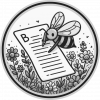


- 0 Resources
- 89 Discussions
- 8 Groups
- 0 Resources
- 0 Discussions
- 1 Groups
British Antarctic Survey
Machine learning researcher at the British Antarctic Survey
- 0 Resources
- 0 Discussions
- 5 Groups
National Geographic is offering funding up to up to $50,000 for conservationists conducting research on how the pandemic has impacted wildlife and conservation work. If you are interested in researching aspects of the...
10 March 2021
Article
WildID is excited to share their new camera trap processing and detection tools with WILDLABS! Using machine learning to identify Southern African wildlife species in large quantities of camera trap data, WildID's tool...
8 March 2021
Edge Impulse is proud to announce their brand-new online course, Introduction to Embedded Machine Learning. Hosted on Coursera, this professional training course will provide beginners with the tools to started with...
9 February 2021
Last year, Tim van Deursen and Thijs Suijten shared their new "Hack the Poacher" system with us, presenting a unique way to detect poachers in real-time within protected national parks. Read on to learn about their...
29 January 2021
Our friends at Edge Impulse are proud to announce that they have become the first AI company to join 1% for the Planet, pledging to donate 1% of revenue to support nonprofit organizations focused on the environment. To...
15 January 2021
Scientists have found that studying high-resolution images of whales from space is a feasible way to estimate their populations. A team led by British Antarctic Survey (BAS) compared satellite images to data collected...
21 December 2020
WILDLABS community members are invited to submit an Expression of Interest to Fisheries Innovation Scotland (FIS) to participate in two research projects involving conservation tech's role in the future of sustainable...
8 December 2020
Hey Acoustic Monitoring and AI for Conservation community members - don't miss Rainforest Connection's Species Auto Detection Kaggle competition, open for to competitors and teams now! Participants will have the chance...
24 November 2020
Community Announcement
WILDLABS is celebrating its five year anniversary! Throughout the rest of 2020, we'll be sharing articles, community features, and case studies showcasing the incredible projects, collaborations, and successes that this...
17 November 2020
Do you have innovative #tech4wildlife ideas that could save one of the most endangered species on earth from extinction? Apply now to join Vaquita Hack, a hackathon for students and early career conservationists! This...
10 November 2020
In this article, Fulbright Scholar and National Geographic Explorer Kasim Rafiq discusses the potential to efficiently conduct wildlife surveys using cameras mounted to safari vehicles, as well as the workflow and AI...
10 November 2020
Today, Sustainable Fishing Challenges group leader Daniel Steadman discusses how fishing gear itself could benefit from fresh technological innovations to prevent both environmental damage and damage to species and...
19 August 2020
June 2025
event
July 2025
October 2025
event
event
February 2023
event
event
January 2023
73 Products
Recently updated products
16 Products
Recently updated products
| Description | Activity | Replies | Groups | Updated |
|---|---|---|---|---|
| Odor based methods would be interesting. Provided they didn't need to be replenished too often.We find varied stimulus prevents habituation. |
+6
|
AI for Conservation, Conservation Tech Training and Education, Emerging Tech, Human-Wildlife Conflict | 7 months 4 weeks ago | |
| Thank you John. |
|
AI for Conservation | 8 months ago | |
| Hello everyone!Check out our new paper on "Reliable and efficient integration of AI into camera traps for smart wildlife monitoring." We... |
|
AI for Conservation | 8 months 1 week ago | |
| Hi Karen,Yeah the discharge curves of lithium cells tend to be very stable for a long time and then drop sharply at the end. Akiba and Brett's advice below re: condensation... |
|
Camera Traps, AI for Conservation | 8 months 1 week ago | |
| Hi @benweinstein !Surely a general detector might be very useful for detecting objects in aerial imagery! Maybe something similar to what MegaDetector does in camera trap images,... |
|
AI for Conservation, Open Source Solutions, Protected Area Management Tools, Drones, Geospatial | 8 months 1 week ago | |
| Thank you!! |
|
AI for Conservation | 8 months 3 weeks ago | |
| Agreed. I have recently begun using SegmentAnything as a replacement for Detectron and have been very pleased. However, for a fish school I don't know how well it would do out of... |
|
Data management and processing tools, AI for Conservation | 9 months ago | |
| @DibblexLesalon looks like a great question for your team at Expert Drones Africa :) |
|
AI for Conservation | 9 months 1 week ago | |
| However, I think it's important to reflect further to determine exactly what needs to be done. |
+8
|
Climate Change, AI for Conservation, Animal Movement, Citizen Science | 9 months 1 week ago | |
| Congrats on the publication! Great work! |
|
AI for Conservation | 9 months 1 week ago | |
| The German start-up Dryad is also working on early fire detection using sensors and AI. |
|
AI for Conservation | 9 months 1 week ago | |
| I found this interesting |
+48
|
AI for Conservation, Emerging Tech | 9 months 2 weeks ago |

